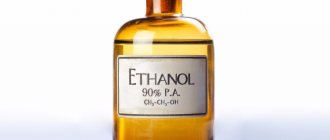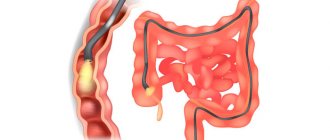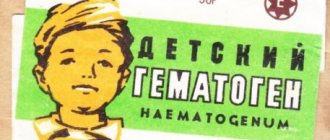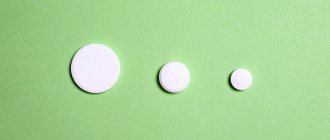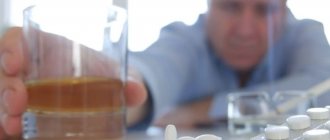Is it possible to drink activated charcoal if you have diarrhea? Activated charcoal is the simplest and most effective remedy for eliminating toxins from the digestive system. Its porous structure promotes maximum absorption of harmful substances.
The adsorbing properties of this drug make it possible to eliminate up to 60% of particles hazardous to health from the gastrointestinal tract. This is what made activated carbon one of the essential medicines in the treatment of diarrhea. It is especially effective in treating digestive disorders caused by household poisoning, as well as allergies to certain foods.
Main causes of diarrhea
The cause of diarrhea may be dysbacteriosis.
Most often, diarrhea occurs due to food poisoning. Other common reasons include the following:
- allergy;
- dysbacteriosis;
- avitaminosis.
Diarrhea is often caused by serious chronic diseases. In this case, complex therapy and compliance with all doctor’s recommendations are required. Taking activated carbon is recommended if the cause of indigestion is known.
Particular care must be taken if diarrhea begins in an infant. Young children quickly lose their vital supply of fluid. This leads to dehydration.
Children can be given activated carbon; this natural remedy is usually well tolerated and does not cause unpleasant consequences. Timely release of toxins allows you to quickly cope with diarrhea and normalize stool.
In what cases is activated carbon prescribed by prescription?
If it is necessary to adsorb harmful substances and remove them from the body, the patient may be given a prescription for activated carbon. This preparation is produced from peat, coke, coal and other products by burning and pressing.
The porous structure makes this drug especially effective for absorbing toxic substances. At the same time, the organic origin of activated carbon makes it quite safe for use. The name Activated carbon in Latin is written as “Carbo activatus”. The active substance is a carbon compound.
Pharmacological effects have 3 main directions:
- antidiarrheal;
- detoxification;
- adsorbent.
Removing intoxication
Prescribed for any poisoning, including food or alcohol, charcoal absorbs harmful substances. They are removed from the body naturally.
Enterosorbing effect
As an enterosorbent, activated carbon can absorb toxins that have entered the gastrointestinal tract. This use is justified, for example, in cases of drug overdose.
Antidiarrheal action
The enveloping property of activated carbon complements its main adsorbing effect. It has a mild bactericidal effect on the flora of the gastrointestinal tract and prevents the development of pathogenic microorganisms.
Basic admission rules
Activated carbon tablets can be ground into powder.
Doctors recommend taking activated carbon in the form of an introductory suspension. To do this, charcoal tablets are ground into powder, diluted with water, and drunk after the reaction is complete. If you swallow the tablets whole, the effect will be slower.
You can prepare 30 g of charcoal powder, add 150 ml of water and drink it. It is better to make the water temperature slightly above room temperature.
In case of poisoning, you can take 30 g of activated carbon at a time. The specific dosage is calculated based on the patient's weight.
Activated carbon should not be combined with other medicinal drugs. Its adsorbent properties will block the action of drugs. To avoid such an undesirable effect, it is necessary to dilute the intake of activated carbon and other medications over time.
You should take it no earlier than an hour after taking other medications. Another option is to drink activated charcoal first, and then take the next medicine an hour later.
Activated carbon has 2 contraindications. It is not advisable to use the product if you have an ulcer. If you have an individual intolerance, you should not take it at all.
Use for adults
Manufacturers produce the drug in the form of powder or tablets.
Activated charcoal should be taken orally, immediately before meals, other medications or drinks, or two hours after, that is, on an empty stomach. It is important to remember that the tablets have a dosage of 250 milligrams. For an adult, the daily dose is 200-250 milligrams of the drug, that is, one tablet per 10 kg of weight. It is recommended to divide the daily dose into three doses. This information is contained in the Latin recipe for activated carbon.
- If there is a functional disorder of the gastrointestinal tract, bloating or diarrhea, then you need to take 3 tablets three times a day. The drug is washed down with water. The course of treatment lasts one week.
- If there is increased secretion of gastric juice and poor digestion of food, then two grams of the drug should be diluted in water and drunk. The course of treatment is 2 weeks.
- If an allergic reaction is observed, the drug is taken according to the general regimen for 2 weeks.
- If a diagnostic examination is required, the drug is taken for one to two days.
The Latin recipe for activated charcoal is of interest to students of medical universities.
How to increase the effectiveness of activated carbon?
It is not difficult to organize the treatment of diarrhea with activated carbon. To increase its effectiveness, it is recommended to follow the following expert advice:
- A couple of tablets can only help a baby. An adult needs to accept almost a whole standard. Generally, it is recommended to take 1 tablet per kilogram of weight.
- A single dose is not enough. After the first dose, you need to wait a few hours and repeat.
- Take the tablets with warm water; you should drink about a glass.
- If diarrhea occurs due to a chronic disease, activated carbon will not stabilize the situation. Complex treatment is required.
- In case of allergic reactions or chemical poisoning, you cannot limit yourself to activated carbon. It is necessary to take other means to eliminate harmful substances from the entire body.
For more information about activated carbon, watch the video:
Activated carbon - recipe in Latin
If a specialist prescribes activated charcoal to a patient for poisoning, then the following information is indicated in the prescription:
- Rp.: Carbonis activati 30.0;
- DS For one dose in half a glass of water.
If the drug is prescribed for flatulence or dyspepsia, then the prescription states:
- Rp.: Tab. Carboleni 0.5 N. 20;
- DS One tablet 2 or 3 times a day.
We looked at the recipe for activated carbon in Latin.
Indications for use
Activated carbon is also used for kidney failure.
The main indications for the use of this remedy are given below.
- As one of the weight loss measures (removal of toxins).
- Allergic manifestations (all types, including Quincke's edema).
- Drug poisoning.
- Alcohol poisoning, hangover syndrome.
- Metabolism problems.
- Kidney failure.
- Cirrhosis, hepatitis of any type.
- Infectious intestinal diseases (salmonellosis, dysentery).
- Poisoning (food, chemical, medicinal).
- Stomach acidity exceeding normal.
- Malfunctions of the gastrointestinal tract, leading to intoxication (dyspepsia, putrefaction, fermentation, flatulence).
- The preparatory stage before internal examinations is for the adsorption of gases.
Powder as a dosage form
The powder has the property of flowability.
Powder (in Latin Pulvis) is a solid dosage form, which may contain one or more drugs. A distinctive feature of the powder from other solid dosage forms is its flowability. Powder is a crushed medicine, and the finer it is, the faster and more effective its action will be.
As mentioned above, powders can be:
- Simple ones, which consist of one drug.
- Complex. which are a mixture of several substances.
- Separated - the maximum weight of the powder can be 1 gram, and the minimum 0.15 grams. They are most often used for oral administration.
- Undivided - can have a minimum weight of 5 grams, and a maximum weight of up to 100 grams. Most often used as a powder.
According to the degree of grinding, the following types of powder are distinguished:
- smallest - in Latin Pulvis subtilissimus. Most often it is intended for application to a wound or mucous membrane, for inhalation. Powders used externally are called powders - in Latin Aspersiones.
- small - in Latin Pulvis subtilis. Mainly intended for oral administration.
- large - in Latin Pulvis grossus. More often used for the manufacture of other dosage forms: solutions, mixtures, ointments.
Before oral use, the powder is mixed with a certain amount of liquid (water is recommended).
Many antibiotics are available in powder form (called dry matter) and are dissolved only before use. Please remember that the instructions for use must be strictly followed to ensure maximum effectiveness and sterility.
Other sorbent options
White charcoal can relieve intestinal gas.
In addition to activated charcoal, there are other types of medications that remove toxins from the body. Among them is white coal.
It is made from silicon dioxide and highly dispersed microcrystalline cellulose. There are also auxiliary substances in the composition, such as potato starch and powdered sugar.
Silicon dioxide is effective in cleansing the body. It is able to remove toxins caused by the activity of microbes or chemicals.
It eliminates allergen substances to which the body reacts acutely. White coal can relieve intestinal gases, products of protein breakdown.
Benefits of white coal
White charcoal tablets have no taste.
Experts often recommend taking white coal, based on its following benefits:
- greater efficiency (4 g per day is enough);
- provides additional stimulation of intestinal function, as a result there is no need to worry about subsequent constipation;
- the tablets have no taste;
- you can swallow the tablets whole;
- removes excess gases from the intestines, prevents increased gas formation;
- helps normalize the functioning of the digestive system, facilitates the absorption of nutrients;
- reduces the potential for the formation of gallstones.
Side effect
A side effect observed in all patients without exception is discoloration of the stool in black. Dark plaque on teeth and fillings is possible if the patient chews the tablet before swallowing it. This may also cause the saliva to have black spots.
If the recommended doses are exceeded, activated carbon can cause constipation, because as a result of its excessive intake, hard and dense feces are formed that are difficult to move through the intestines.
If taking the sorbent causes any other negative reaction, you should immediately inform your doctor.



